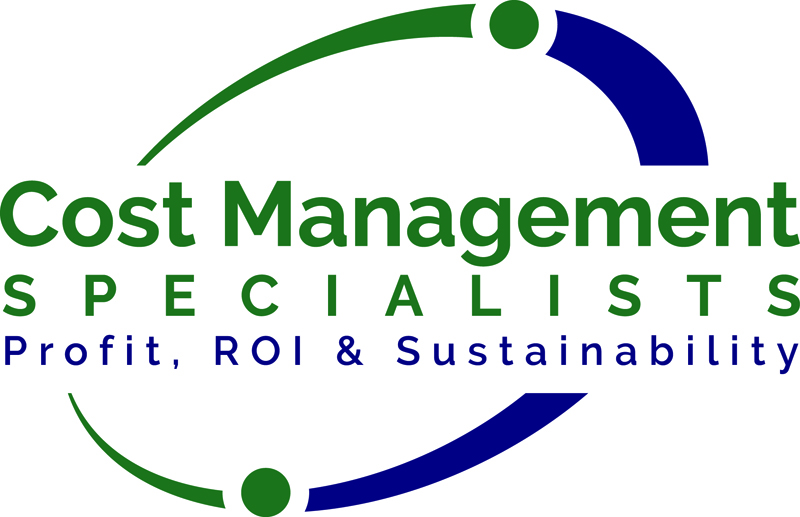
Revenue risk and the need to distinguish between fixed, variable, and discretionary cost was highlighted by Covid restrictions and lockdowns.
Improving cashflow is good management anytime and can be the key to survival in the hardest of times. Survival is a challenge for any business whose revenue reduces but whose costs do not reduce proportionately.
Out-of-sight, out-of-mind expenses reduce working capital by stealth often without regard to value. Do current expenses still represent value given changes in your business and the passage of time? A ‘set and forget mentality is facilitated by direct debits and can reduce capacity to manage variance impacting cashflow.
Workforce planning is a subject for another day, As a major expense, labour is often the 1st casualty of revenue decline. We recommend reviewing labour separately as an investment to be managed more than a cost to be reduced. Capable staff drive revenue which is a major determinant of cashflow when expenses are better managed.
To improve working capital, undertake a Business Expenses Review excluding labour in the initial exercise.
Take the positive action required. Invite Cost Management Specialists to partner with you and bring an objective view and the skills and experience to get great results. Contact John Cleary on 0411 522 521 for a confidential no obligation discussion. As external specialists, we see the opportunities hidden in plain sight.
Alternatively, conduct the internally review as a collaboration between a finance specialists and the key stakeholder(s) responsible for the expenses.
We recommend that the review first break down expenses as:
Variable – vary subject to throughput or consumption e.g., telecommunications, travel
Fixed – no variance with throughput or consumption e.g., rent, contracts,
and then consider whether any Variable or Fixed expense is better defined as: Discretionary or Non-Essential in the current economy or at current revenue levels.
Question the value and the return. Each expense is an investment in success.
How can the return be increased or should a fixed, variable, or discretionary expense be reduced or eliminated?
1. Historical Expense Reduction Decision Review
If you scaled down previously, are any of the expenses that you reduced undermining future revenue? If so, review the opportunity cost, the cost/benefit, and the impact on future revenue. Restore expenses which can achieve a set margin and increase cashflow and revenue.
2. Current Expense Review
Having classified expenses, review each expense in detail – value, unit cost, volume, frequency, usage etc. This is not an exhaustive list. It will to unearth gold nuggets and improve working capital if you work through all expenses.
Bank Accounts – Is your Bank imposing a loyalty tax on you? Do new customers get better rates? Canstar allow you to compare savings and transaction account interest rates against the market. Test the market or simply challenge your bank to improve your rate.
Contracts – Are your suppliers imposing a loyalty tax on you? Work through your current contracts which is when a current and accurate Contract Register proves its value. Have you been caught with rollover contracts at higher than market rates? Automatic contract renewals assume ongoing value even if the value has declined or evaporated. What are you paying for that you don’t use or don’t use as much or don’t need?
Credit Cards – Great if there is no outstanding monthly balance. Not so great if credit cards are used as a 2nd overdraft. Can any outstanding balance be reduced them eliminated? Are more competitive interest rates available?
Discretionary Spending -What expenses are discretionary or non-essential? What expenses once represented value at higher revenue levels but are “non-essential” at revenue reduced? e.g., paper-based marketing with low ROI, events, memberships, travel, uniforms.
Equipment Hire – if current operations do not require hired equipment, return, and rehire when required! Refer to the Contract Register section above if equipment is under contract.
Expenses Accounts – Is the line between private & business expenses clear? What employee expenses, paid by the business, might have been regarded as value at higher revenue but not at current revenue?
Insurances – review your Insurance Portfolio based on your claims history. Are you over or under insured? Are current rates value for money?
International Subscriptions/Payments – a decline in the value of AUD makes overseas subscriptions, including Software As A Service (SAAS), more expensive. Review bank statements. Confirm current and future value against currency fluctuations and actual cost.
Memberships – Review the current value of current memberships. If staff are flying less, is that lounge membership necessary? Please also consider how vital membership revenue is to an organisation’s survival. e.g., an arts organisation trying to rebuild revenue to survive. Discretionary but affordable as a good corporate citizen?
Retainers – review the value of retainers paid in advance against previous work estimates. Do retainers represent value in the current market or should they be re-evaluated or ceased?
Software Licenses – in a scaled-down business with less staff, is the number of licenses being paid for excessive? Identify licenses that are no longer required. Reduce the number of licenses if the contract allows or make a note to do so at the time of contract renewal.
Tendering – review quality, service, and price benchmarks. Do not agree to a price increase before reviewing value and market price. Assess the difficulty in switching supplier. It is not always necessary to achieve better value.
Confirm best value by testing the market when quality or service is unacceptable, a price increase is proposed, or a contract expires. Cost Management Specialists offer a competitive tendering service and guarantee that the benefits will exceed the cost
Utilities – given predictions of major price increases, review light, heat, power & water consumption, and charges. What is left on unnecessarily or comes on automatically when it is not required or can be reduced without significant operational impact?
While in cost review mode, have a look at these important personal expenses:
Mortgage– Know what your mortgage rate is? Is it a competitive interest rate? Is it time to lock in a fixed rate rather than variable? Learn from the financial press and financiers. Check the market. Have the discussion with your mortgagee and their competitors.
Negative Gearing – Confirm the tax benefit of a negatively geared property over the last financial year. Demand and rentals have increased. Estimate your income over the next 3, 6 & 12 months. If your personal income has reduced, your negatively geared investment has less value if you move into a lower tax bracket. Explore your options including rent increases and sale if the value is unlikely to appreciate.
Subscriptions – question whether a subscription represents value or is nice but not essential. Cancelling LinkedIn Premium, Spotify or hard-copy magazines can have little downside. There are options that improve your disposable income (working capital).
To discuss working with a skilled and experienced partner to undertake an operational audit and improve working capital, contact John Cleary on 0411 522 521 for a confidential no obligation discussion. As external specialists, we see the opportunities hidden in plain sight.

